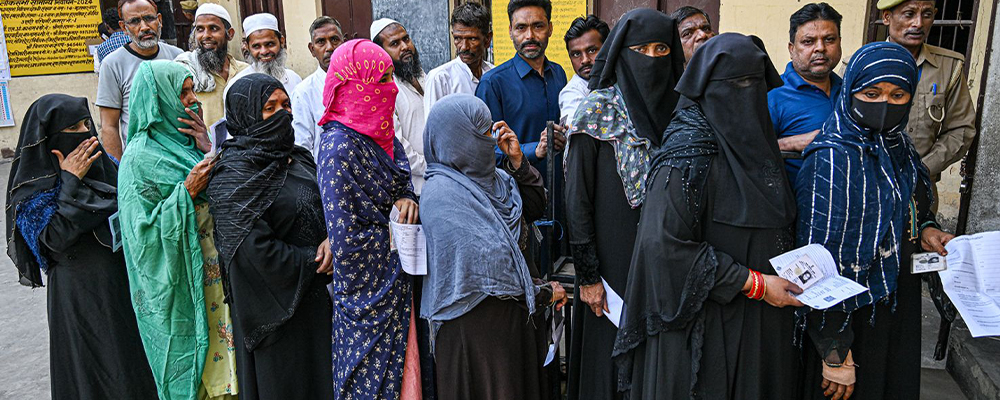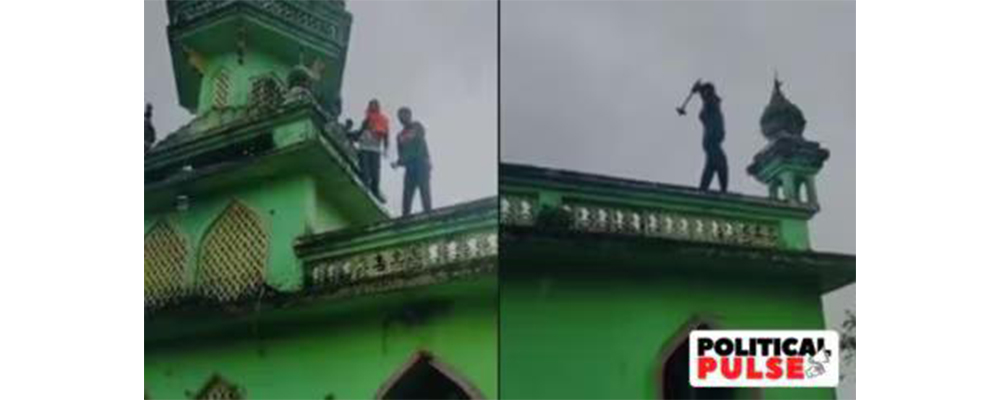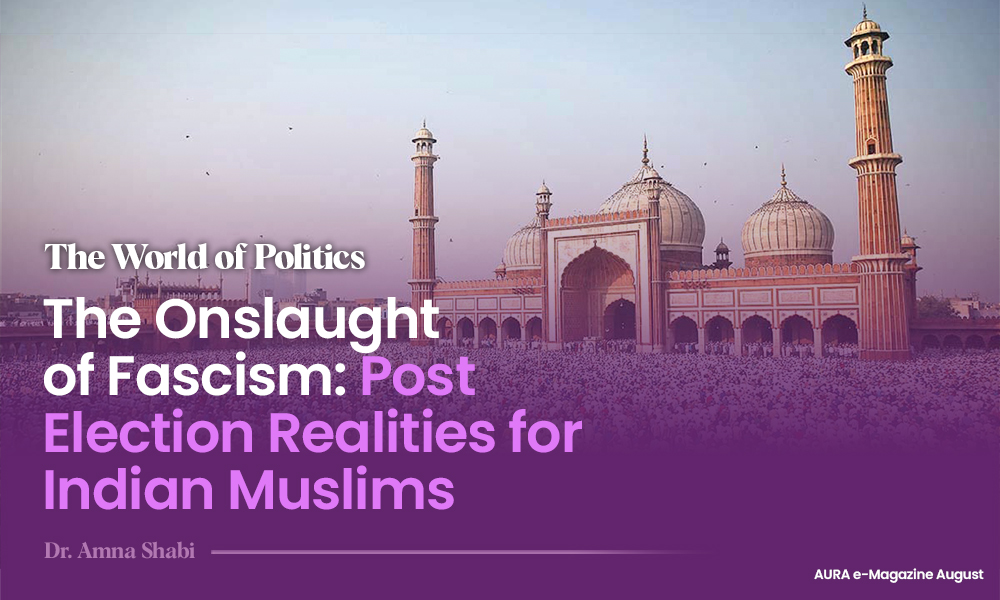
There have been several instances of religious violence against Muslims since the partition of India in 1947. The roots of anti-muslim violence can be traced to events of resentment towards the Islamic conquest of India during the Middle Ages, divisive policies adopted by the colonial government during the British Raj and the partition of India into Muslim-majority Pakistan and an Indian state with a Muslim minority. There’s no sidestepping the fact that attacks and hate crime incidences against the country’s Muslim minority by members of the Hindu majority have occurred in greater frequency and ferocity in the years since Prime Minister Narendra Modi, leader of the Bharatiya Janata Party (BJP), came to power in 2014 –on the back of a Hindu nationalist agenda, one in which anti-Muslim hatred and discrimination features in mainstream political discourse and government policy. These realities have brought Muslims to the brink of genocide in India after Narendra Modi secured a third term in June 2024.
An incident reported, where a 35-year-old Mohammad Fareed alias Aurangzeb was allegedly lynched on suspicion of being Muslim and later accused of theft by police, raises serious concerns about justice and prejudice. Even as some media channels reported skirmishes and stone pelting, the police maintained that there was no breach of peace in the city. Shops remained shut on Railway Road and the Mamu Bhanja area of Aligarh as the shopkeepers launched a sit-in to support the accused. It is critical that accusations, whether of theft or any crime, are handled through legal processes rather than vigilante violence leading to the death of the accused. This situation underscores the importance of respecting due process and human rights.
Recently, Vishalgad Fort, located in Shahuwadi of Kolhapur district, about 75 km from Kolhapur city, witnessed an encroachment drive targeting religious structures, including a mosque allegedly illegally occupied. According to a report from the Archaeological Survey State Department, the fort, designated an archaeological site in 1999, includes 12 recognised religious edifices, predominantly Hindu temples, alongside the contested Dargah. The encroachment sparked protests, drawing supporters of a Hindutva group to the fort on July 14th. Disturbingly, the protest escalated into violence with reports of stone pelting at the Dargah, accompanied by provocative slogans and vandalism at the mosque. Homes and shops were vandalised and looted, and vehicles were even thrown off cliffs, exacerbating the already tense situation. Visual evidence depicts individuals atop the mosque attempting to damage its dome structures amid inflammatory chants, highlighting the severity and complexity of the ongoing unrest. Other homes and shops were vandalised and looted, sources said. Several vehicles were also torched in the clashes and thrown off the cliff from the fort. Visuals from the site show miscreants atop the mosque trying to damage the dome structures while chanting slogans. :

In a disturbing incident, 20-year-old Javed Quraishi from Jalalabad faced severe backlash after allegedly posting pictures of animal sacrifice on his WhatsApp status during Eid al-Adha. Enraged individuals vandalised his garment and cosmetics shop in response. Despite police clarifying that the animal depicted was not protected under the Prevention of Cruelty to Animals Act 1960, tensions escalated. The officer emphasised that while the act was not illegal, it was deemed distasteful. Javed was subsequently arrested under IPC sections 153A (promoting enmity between different groups on grounds of religion, race, place of birth, residence, language, etc.) and 505 (statements conducing to public mischief). This incident underscores the sensitivity surrounding religious practices and the legal ramifications of social media posts in today’s context.

These incidents beg the question: where does the line blur between faith and fanaticism, and what does it say about our collective sense of justice and respect for the law? Recently, we’ve witnessed unsettling incidents that speak volumes about trespass, injustice, and deep-seated hatred. These occurrences seem to propagate a sense of unwarranted supremacy, bolstered by a belief that even if laws are flouted, they are still on our side, especially within the majority community. This unsettling reality instils a constant fear among Muslims of being relegated to second-class citizenship, a divide that only seems to widen with each passing day. However, amidst this disheartening landscape, the broader public sentiment is perceptibly shifting towards a desire for a hate-free India, transcending the divisive Hindu-Muslim politics that has gripped the nation. Despite extensive campaigns and the shadows of electoral bonds scandals, the BJP fell short of forming a government without the NDA coalition, prompting an earnest question: Would things have been less severe if the BJP hadn’t emerged victorious in the recent Lok Sabha elections?


Absolutely biased article of a so called educated muslim. For every one instance of alleged injustice against Muslims there are 10 crimes occurring against Hindus done by muslims. You are always Playing the victim card. Get a life. In every country you create problems with every religion. Stop preaching hatred and the world will be good to you. What a waste of education for you being a doctor still cannot see the wrong doings of your religion but blame everything on Hindus.